- Home
- Ken Follett
Night Over Water Page 9
Night Over Water Read online
Page 9
The day after war broke out he told her he was going home.
She was sitting up in bed with the covers pulled up just under her bust, so that her breasts showed: Mark loved her to sit like that. He thought her breasts were wonderful, although she felt they were too large.
They were having a serious conversation. Britain had declared war on Germany, and even happy lovers had to talk about it. Diana had been following the grisly conflict in China all year, and the thought of war in Europe filled her with dread. Like the Fascists in Spain, the Japanese did not scruple to drop bombs on women and children; and the carnage in Chungking and I-chang had been sickening.
She asked Mark the question that was on everyone’s lips: “What do you think will happen?”
For once he did not have a funny answer. “I think it’s going to be awful,” he said solemnly. “I believe Europe will be devastated. Maybe this country will survive, being an island. I hope so.”
“Oh,” Diana said. Suddenly she was frightened. British people were not saying things like that. The newspapers were full of fighting talk, and Mervyn was positively looking forward to war. But Mark was an outsider, and his judgment, delivered in that relaxed American voice, sounded worryingly realistic. Would bombs be dropped on Manchester?
She remembered something Mervyn had said, and repeated it. “America will have to come into the war sooner or later.”
Mark shocked her by saying: “Christ, I hope not. This is a European squabble, nothing to do with us. I can just about see why Britain declared war, but I’m damned if I want to see Americans die defending fucking Poland.”
She had never heard him swear like this. Sometimes he whispered obscenities in her ear while they were making love, but that was different. Now he seemed angry. She thought perhaps he was a little frightened. She knew Mervyn was frightened: in him it came out as reckless optimism. Mark’s fear showed as isolationism and cursing.
She was dismayed by his attitude, but she could see his point of view: why should Americans go to war for Poland, or even for Europe? “But what about me?” she asked. She tried for a note of levity. “You wouldn’t like me to be raped by blond Nazis in gleaming jackboots, would you?” It wasn’t very funny and she regretted it immediately.
That was when he took an envelope out of his suitcase and handed it to her.
She pulled out a ticket and looked at it. “You’re going home!” she cried. It was like the end of the world.
Looking solemn, he said simply: “There are two tickets.”
She felt as if her heart would stop. “Two tickets,” she repeated tonelessly. She was disoriented.
He sat on the bed beside her and took her hand. She knew what he was going to say, and she was at the same time thrilled and terrified..
“Come home with me, Diana,” he said. “Fly to New York with me. Then come to Reno and get divorced. Then let’s go to California and be married. I love you.”
Fly. She could hardly imagine flying across the Atlantic Ocean: such things belonged in fairy tales.
To New York. New York was a dream of skyscrapers and nightclubs, gangsters and millionaires, fashionable heiresses and enormous cars.
And get divorced. And be free of Mervyn!
Then let’s go to California. Where movies were made, and oranges grew on trees, and the sun shone every day.
And be married. And have Mark all the time, every day, every night.
She was unable to speak.
Mark said: “We could have babies.”
She wanted to cry.
“Ask me again,” she whispered.
He said: “I love you. Will you marry me and have my children?”
“Oh, yes,” she said, and she felt as if she were already flying. “Yes, yes, yes!”
She had to tell Mervyn that night.
It was Monday. On Tuesday she would have to travel to Southampton with Mark. The Clipper left on Wednesday at two p.m.
She was floating on air when she arrived home on Monday afternoon; but as soon as she entered the house her euphoria evaporated.
How was she going to tell him?
It was a nice house: a big new villa, white with a red roof. It had four bedrooms, three of which were almost never used. There was a nice modern bathroom and a kitchen with all the latest gadgets. Now that she was leaving, she looked at everything with nostalgic fondness: this had been her home for five years.
She prepared Mervyn’s meals herself. Mrs. Rollins did the cleaning and laundry, and if Diana had not cooked she would have had nothing to do. Besides, Mervyn was a working-class boy at heart, and he liked his wife to put his meal on the table when he came home. He even called the meal “tea,” and he would drink tea with it, although it was always something substantial, sausages or steak or a meat pie. For Mervyn, “dinner” was served in hotels. At home you had tea.
What would she say?
Today he would have cold beef, left over from Sunday’s roast. Diana put on an apron and began to slice potatoes for frying. When she thought of how angry Mervyn was going to be, her hands shook, and she cut her finger with the vegetable knife.
She tried to get a grip on herself as she washed the cut under the cold tap, then dried her finger with a towel and wrapped a bandage around it. What am I afraid of? she asked herself. He won’t kill me. He can’t stop me: I’m over twenty-one and it’s a free country.
The thought did not calm her nerves.
She set the table and washed a head of lettuce. Although Mervyn worked hard, he almost always came home at the same time. He would say: “What’s the point of being the boss if I have to stop at work when everyone else goes home?” He was an engineer, and he had a factory that made all kinds of rotors, from small fans for cooling systems to huge screws for ocean liners. Mervyn had always been successful—he was a good businessman—but he really hit the jackpot when he started manufacturing propellers for aircraft. Flying was his hobby, and he had his own small plane, a Tiger Moth, at an airfield outside town. When the government started to build up the air force, two or three years ago, there were very few people who knew how to make curved rotors with mathematical precision, and Mervyn was one of those few. Since then, business had boomed.
Diana was his second wife. The first had left him, seven years ago, and run off with another man, taking their two children. Mervyn had divorced her as quickly as he could and proposed to Diana as soon as the divorce came through. Diana was then twenty-eight and he was thirty-eight. He was attractive, masculine and prosperous; and he worshipped her. His wedding present to her had been a diamond necklace.
A few weeks ago, on their fifth wedding anniversary, he had given her a sewing machine.
Looking back, she could see that the sewing machine had been the last straw. She had been hoping for a car of her own: she could drive, and Mervyn could afford it. When she saw the sewing machine, she felt she had come to the end of her tether. They had been together for five years and he had not noticed that she never sewed.
She knew that Mervyn loved her, but he did not see her. In his vision there was just a person marked WIFE. She was pretty, she performed her social role adequately, she put his food on the table and she was always willing in bed: what else should a wife be? He never consulted her about anything. Since she was neither a businessman nor an engineer, it never occurred to him that she had a brain. He talked to the men at his factory more intelligently than he talked to her. In his world, men wanted cars and wives wanted sewing machines.
And yet he was very clever. The son of a lathe operator, he had gone to Manchester Grammar School and studied physics at Manchester University. He had had the opportunity to go on to Cambridge and take his master’s degree, but he was not the academic type, and he got a job in the design department of a large engineering company. He still followed developments in physics, and would talk endlessly to his father—never to Diana, of course—about atoms and radiation and nuclear fission.
Unfortunately, Diana did not understand
physics, anyway. She knew a lot about music and literature and a little about history, but Mervyn was not much interested in any kind of culture, although he liked films and dance music. So they had nothing to talk about.
It might have been different if they had had children. But Mervyn already had two children by his first wife and he did not want any more. Diana had been willing to love them, but she had never been given the chance: their mother had poisoned their minds against Diana, pretending that Diana had caused the breakup of the marriage. Diana’s sister in Liverpool had cute little twin girls with pigtails, and Diana lavished all her maternal affection on them.
She was going to miss the twins.
Mervyn enjoyed an energetic social life with the city’s leading businessmen and politicians, and for a time Diana enjoyed being his hostess. She had always loved beautiful clothes and she wore them well. But there had to be more to life than that.
For a while she had played the role of the nonconformist of Manchester society—smoking cigars, dressing extravagantly, talking about free love and communism. She had enjoyed shocking the matrons, but Manchester was not a highly conservative place, and Mervyn and his friends were Liberals, so she had not caused much of a stir.
She was discontented, but she wondered whether she had the right. Most women thought her lucky: she had a sober, reliable, generous husband, a lovely home and crowds of friends. She told herself she ought to be happy. But she was not—and then Mark came along.
She heard Mervyn’s car pull up outside. It was such a familiar noise, but tonight it sounded ominous, like the growl of a dangerous beast.
She put the frying pan on the gas stove with a shaking hand.
Mervyn came into the kitchen.
He was breathtakingly handsome. There was gray in his dark hair now, but it only made him look more distinguished. He was tall, and had not got fat like most of his friends. He had no vanity, but Diana made him wear well-cut dark suits and expensive white shirts because she liked him to look as successful as he was.
She was terrified he would see the guilt on her face and demand to know what was the matter.
He kissed her mouth. Full of shame, she kissed him back. Sometimes he would embrace her and press his hand into the cleft of her buttocks, and they would become passionate so that they had to hurry to the bedroom and leave the food to burn; but that did not happen much anymore, and today was no exception, thank God. He kissed her absentmindedly and turned away.
He took off his jacket, waistcoat, tie and collar, and rolled up his sleeves; then he washed his hands and face at the kitchen sink. He had broad shoulders and strong arms.
He had not sensed that anything was wrong. He would not, of course; he did not see her; she was just there, like the kitchen table. She had no need to worry. He would not know anything until she told him.
I won’t tell him yet, she thought.
While the potatoes were frying she buttered the bread and made a pot of tea. She was still shaky, but she hid it. Mervyn read the Manchester Evening News and hardly looked at her.
“I’ve got a bloody troublemaker at the works,” he said as she put the plate in front of him.
I couldn’t care less, Diana thought hysterically. I’ve nothing to do with you anymore.
Then why have I cooked your tea?
“He’s a Londoner, from Battersea, and I think he’s a Communist. Anyway, he’s asking for higher rates for working on the new jig borer. It’s not unreasonable, really, but I’ve priced the job based on the old rates, so he’ll have to put up with it.”
Diana screwed up her nerve and said: “I’ve got something to tell you.” Then she wished fervently that she could take the words back, but it was too late.
“What did you do to your finger?” he said, noticing the little bandage.
This commonplace question deflated her. “Nothing,” she said, slumping into her chair. “I cut it slicing potatoes.” She picked up her knife and fork.
Mervyn ate heartily. “I should be more careful who I take on, but the trouble is, good toolmakers are hard to come by nowadays.”
She was not expected to respond when he talked about his business. If she made a suggestion, he would give her an irritated look, as if she had spoken out of turn. She was there to listen.
While, he talked about the new jig borer and the Battersea Communist, she remembered their wedding day. Her mother had been alive then. They had got married in Manchester, and the reception had been held at the Midland Hotel. Mervyn in morning dress had been the handsomest man in England. Diana had thought it would be forever. The idea that the marriage might not last had not crossed her mind. She had never met a divorced person before Mervyn. Recalling how she felt then, she wanted to cry.
She also knew that Mervyn would be shattered by her leaving. He had no idea what was in her mind. The fact that his first wife had left him in exactly the same way made it worse, of course. He was going to be distraught. But first he would be furious.
He finished his beef and poured himself another cup of tea. “You haven’t eaten much,” he said. In fact she had not eaten anything.
“I had a big lunch,” she replied.
“Where did you go?”
The innocent question threw her into a panic. She had eaten sandwiches in bed with Mark at a hotel in Blackpool, and she could not think of a plausible lie. The names of the principal restaurants in Manchester came to mind, but it was possible that Mervyn had had lunch in one of those. After a painful pause she said: “The Waldorf Café.” There were several Waldorf Cafés—it was a chain of inexpensive restaurants where you could get steak and chips for one shilling and ninepence.
Mervyn did not ask her which one.
She picked up the plates and stood up. Her knees felt so weak she was afraid she would fall down, but she made it to the sink. “Do you want a sweet?” she asked him.
“Yes, please.”
She went to the pantry and found a can of pears and some condensed milk. She opened the tins and brought his dessert to the table.
Watching him eat canned pears, she was swamped by a sense of the horror of what she was about to do. It seemed unforgivably destructive. Like the coming war, it would smash everything. The life that she and Mervyn had created together in this house, in this city, would be ruined.
She suddenly realized she could not do it.
Mervyn put down his spoon and looked at his fob watch. “Half past seven—let’s tune in to the news.”
“I can’t do it,” Diana said aloud.
“What?”
“I can’t do it,” she said again. She would call the whole thing off. She would go and see Mark now and tell him she had changed her mind. She was not going to run away with him after all.
“Why can’t you listen to the wireless?” Mervyn said impatiently.
Diana stared at him. She was tempted to tell him the whole truth; but she did not have the nerve for that either. “I have to go out,” she said. She cast about frantically for an excuse. “Doris Williams is in hospital and I ought to visit her.”
“Who’s Doris Williams, for heaven’s sake?”
There was no such person. “You have met her,” Diana said, improvising wildly. “She’s had an operation.”
“I don’t remember her,” he said, but he was not suspicious: he had a bad memory for casual acquaintances.
Diana was inspired to say: “Do you want to come with me?”
“Good God, no!” he said, as she had known he would.
“I’ll drive myself, then.”
“Don’t go too fast in the blackout.” He got up and went through to the parlor, where the wireless was.
Diana stared after him for a moment. He’ll never know how close I came to leaving him, she thought with a kind of sadness.
She put on a hat and went out with her coat over her arm. The car started the first time, thank God. She steered out of the drive and turned toward Manchester.
The journey was a nightmare. She was
in a desperate rush, but she had to crawl along because her headlights were masked and she could see only a few yards in front; and besides, her vision was blurred because she could not stop crying. If she had not known the road well, she would probably have crashed.
The distance was less than ten miles but it took her more than an hour.
When finally she stopped the car outside the Midland, she was exhausted. She sat still for a minute, trying to compose herself. She took out her compact and powdered her face to hide the signs of tears.
Mark would be brokenhearted, she knew; but he could bear it. He would soon come to look back on this as a summer romance. It was less cruel to end a short, passionate love affair than to break up a five-year marriage. She and Mark would always look back on the summer of 1939 fondly—
She burst into tears again.
It was no use sitting here thinking about it, she decided after a while. She had to go in and get it over with. She repaired her makeup again and got out of the car.
She walked through the lobby of the hotel and went up the staircase without stopping at the desk. She knew Mark’s room number. It was, of course, quite scandalous for a woman alone to go to a single man’s hotel room; but she decided to brazen it out. The alternative would have been to see Mark in the lounge or the bar, and it was unthinkable to give him this kind of news in a public place. She did not look around her, so she did not know whether she had been seen by anyone she knew.
She tapped on his door. She prayed that he would be here. What if he had decided to go out to a restaurant, or to see a film? There was no reply, and she knocked again, harder. How could he go to the cinema at a time like this?
Then she heard his voice: “Hello?”
She knocked again and said: “It’s me!”
She heard rapid footsteps. The door was flung open and Mark stood there, looking startled. He smiled happily, drew her inside, closed the door and embraced her.

 The Pillars of the Earth
The Pillars of the Earth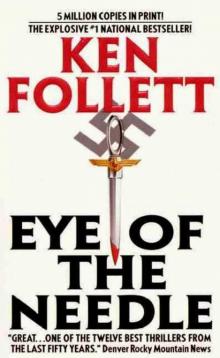 Eye Of The Needle
Eye Of The Needle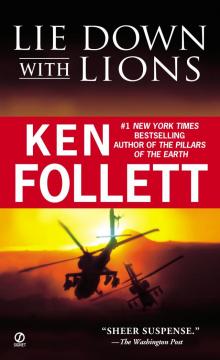 Lie Down With Lions
Lie Down With Lions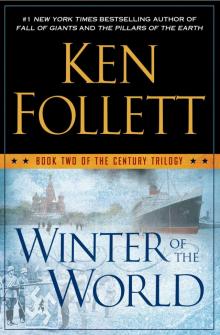 Winter of the World
Winter of the World Triple
Triple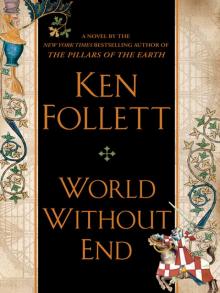 World Without End
World Without End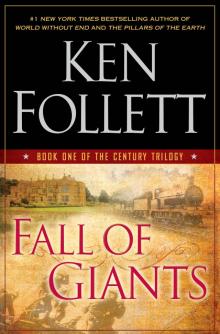 Fall of Giants
Fall of Giants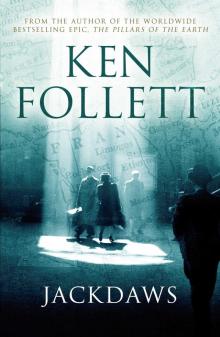 Jackdaws
Jackdaws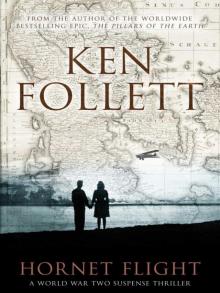 Hornet Flight
Hornet Flight Whiteout
Whiteout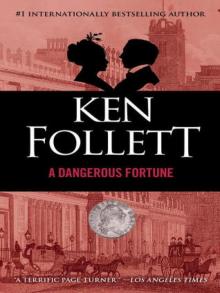 A Dangerous Fortune
A Dangerous Fortune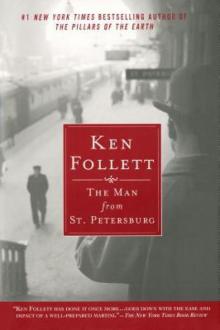 The Man From St. Petersburg
The Man From St. Petersburg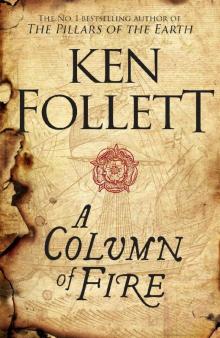 A Column of Fire
A Column of Fire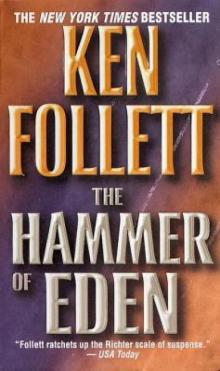 The Hammer of Eden
The Hammer of Eden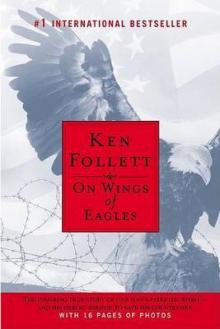 On Wings of Eagles
On Wings of Eagles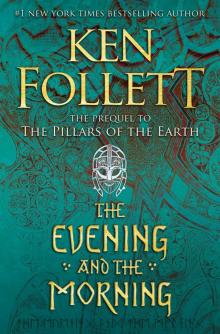 The Evening and the Morning
The Evening and the Morning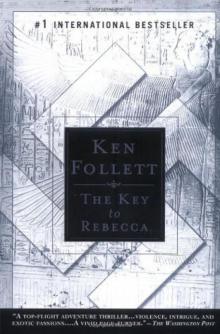 The Key to Rebecca
The Key to Rebecca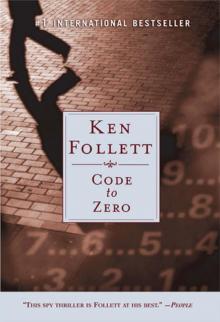 Code to Zero
Code to Zero Paper Money
Paper Money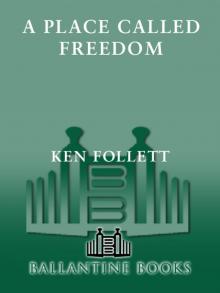 A Place Called Freedom
A Place Called Freedom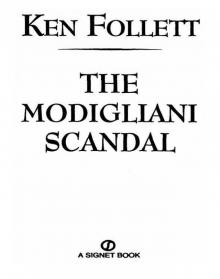 The Modigliani Scandal
The Modigliani Scandal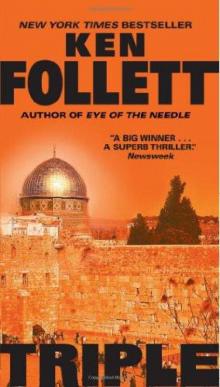 Triple (1991)
Triple (1991)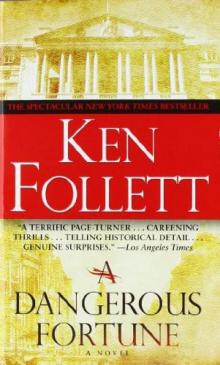 A Dangerous Fortune (1994)
A Dangerous Fortune (1994)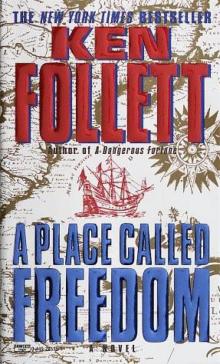 A Place Called Freedom (1995)
A Place Called Freedom (1995)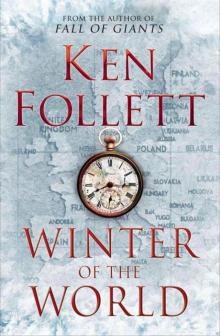 Winter of the World (Century Trilogy 2)
Winter of the World (Century Trilogy 2) Code to Zero (2000)
Code to Zero (2000)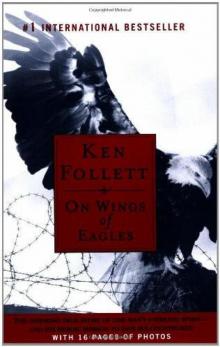 On Wings Of Eagles (1990)
On Wings Of Eagles (1990) Storm Island
Storm Island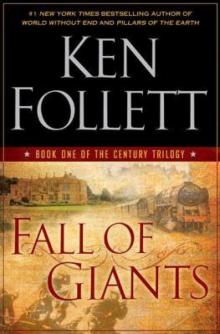 Fall of Giants (The Century Trilogy)
Fall of Giants (The Century Trilogy)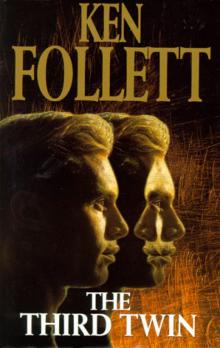 the Third Twin (1996)
the Third Twin (1996)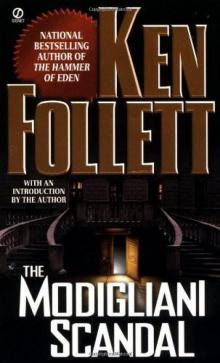 The Modigliani Scandal (1976)
The Modigliani Scandal (1976)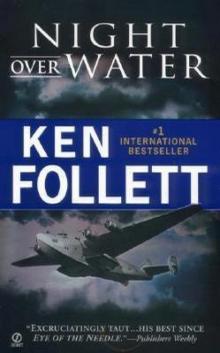 Night Over Water
Night Over Water